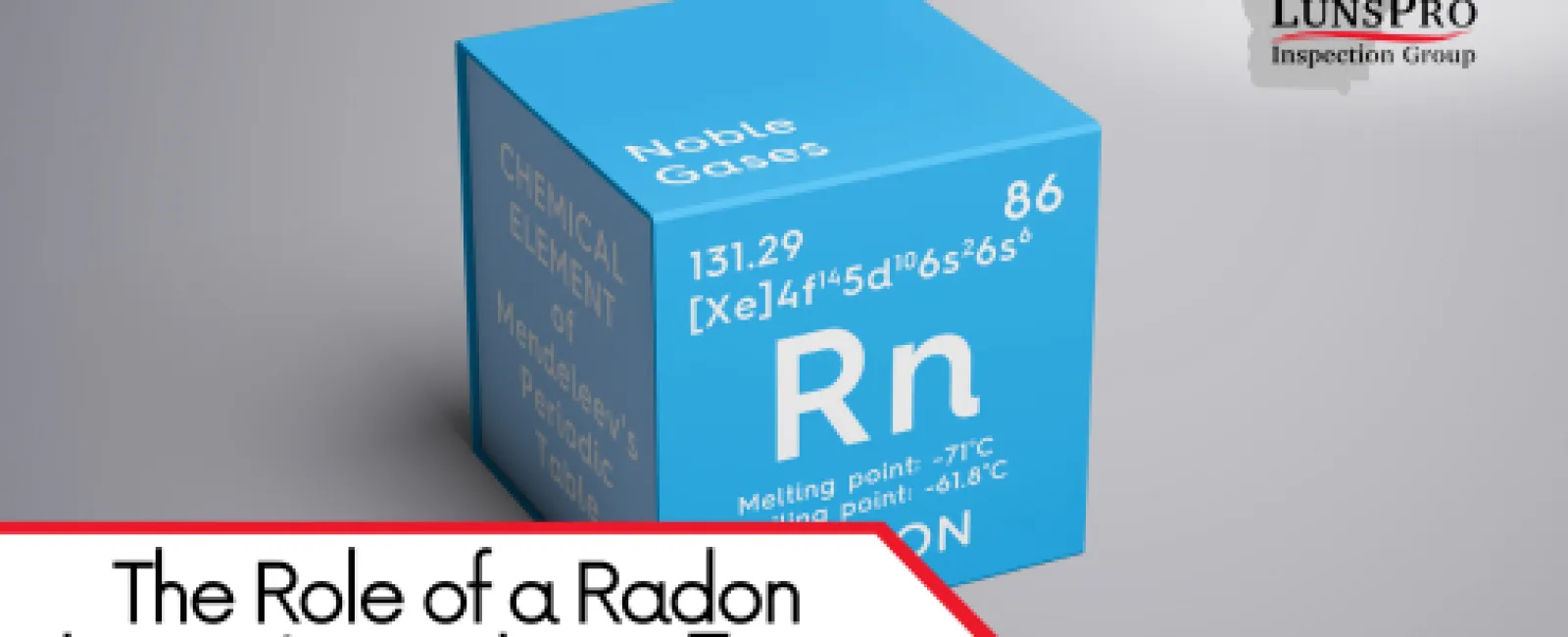When homeowners think of indoor health hazards, mold, asbestos, or lead paint are often the first concerns that come to mind. However, there's another, often invisible threat that can significantly impact a family's well-being over time—radon gas. Odorless, tasteless, and radioactive, radon is the second leading cause of lung cancer in the United States and the leading cause among non-smokers. Despite its serious health implications, many homeowners are unaware of radon's presence in their living spaces, simply because it can't be detected without specialized testing.
At LunsPro Inspection Group, we believe that radon inspections should be a core component of any long-term home safety strategy. For homeowners in Atlanta, Alpharetta, and Athens, as well as across the Metro Areas, routine radon testing is more than a precaution—it's a proactive step toward protecting loved ones from a largely preventable risk. Whether you're buying, selling, or have lived in your home for decades, incorporating a radon inspection into your regular Georgia home inspections is essential for peace of mind and long-term safety.
What Is Radon and Why Is It Dangerous?
Radon is a naturally occurring radioactive gas that forms from the breakdown of uranium in soil, rock, and water. It seeps into homes through cracks in foundations, gaps in floors or walls, construction joints, or even through well water. While outdoor radon levels are usually harmless due to atmospheric dilution, indoor accumulation—especially in basements and poorly ventilated areas—can pose a serious health risk.
The Environmental Protection Agency (EPA) has established that long-term exposure to radon at or above 4.0 picocuries per liter (pCi/L) significantly increases the risk of developing lung cancer. According to the Centers for Disease Control and Prevention (CDC), radon causes over 20,000 lung cancer deaths annually in the United States. Given that the gas is undetectable by human senses, the only way to know if your home has elevated radon levels is through professional testing.
Why Radon Testing Matters in Georgia
Radon is found in varying concentrations across the country, and Georgia is no exception. In fact, the Metro Areas, including Atlanta, Alpharetta, and Athens, are considered moderate to high-risk zones according to the EPA's radon zone map. Granite-based soil common in parts of the state, along with humid climates and older home construction, can increase the potential for radon intrusion.
Homeowners in these regions often rely on Georgia home inspections for foundation issues, moisture intrusion, and HVAC assessments—but many still overlook the importance of adding a radon test to their inspection checklist. At LunsPro Inspection Group, we regularly discover elevated radon levels during Alpharetta Residential and Commercial Inspections as well as in homes throughout the Atlanta and Athens areas. This underscores the need for widespread awareness and routine testing in both residential and commercial properties.
The Science Behind Radon Accumulation in Homes
Radon enters homes through a process known as the "stack effect," where warm indoor air rises and escapes through upper levels, creating a vacuum that pulls air—including radon gas—from the soil into lower areas of the home. This process is exacerbated during the winter months when homes are sealed tightly to conserve heat, reducing ventilation and allowing radon levels to rise unchecked.
Cracks in concrete slabs, poorly sealed sump pumps, and construction joints are all common entry points. In some cases, radon can even travel through water systems, especially if your home uses well water. The gas becomes especially concentrated in enclosed, poorly ventilated areas like basements, crawl spaces, and utility rooms. Once trapped indoors, radon decays into radioactive particles that can be inhaled and cause damage to lung tissue over time.
What a Radon Inspection Entails
A professional radon inspection conducted by LunsPro Inspection Group involves placing a testing device in the lowest livable area of the home, usually for 48 to 96 hours. The device measures the concentration of radon gas over time, giving a reliable average that reflects actual exposure risk. We use EPA-approved, calibrated equipment to ensure accurate results, and our inspectors are trained to identify potential radon entry points and offer mitigation recommendations when necessary.
For real estate transactions, short-term testing is most commonly used, but homeowners who plan to remain in their homes for the long term may also consider continuous radon monitoring devices or long-term testing kits that provide insights over several months.
When Should You Schedule a Radon Inspection?
The best time to schedule a radon test is before purchasing a home or when making significant structural changes, such as finishing a basement or installing new HVAC systems. However, LunsPro Inspection Group recommends periodic testing even in existing homes, particularly those in Atlanta, Alpharetta, and Athens or anywhere within the Metro Areas where radon risks are known to be elevated.
Radon levels can fluctuate based on weather, seasons, and changes in ventilation patterns. For example, sealing a home for energy efficiency may inadvertently increase radon concentrations. Retesting is especially important after major renovations, basement conversions, or the installation of radon mitigation systems to ensure continued effectiveness.
The Long-Term Benefits of Radon Mitigation
If a radon inspection reveals elevated levels, it's important to understand that the situation is entirely manageable. A professional mitigation system—typically involving a vent pipe and fan system—can reduce radon levels by up to 99%. These systems draw radon from beneath the home and safely vent it outside, preventing it from entering living spaces.
Radon mitigation not only safeguards your family's health but also enhances the resale value of your property. Homes with professionally installed and maintained mitigation systems are often more attractive to buyers and may command higher offers. As part of our Atlanta, Alpharetta, and Athens Residential and Commercial Inspections, we frequently advise sellers to install mitigation systems proactively if radon has been an issue in the past.
Why Choose LunsPro for Radon Inspections?
At LunsPro Inspection Group, our radon testing services are built on accuracy, transparency, and experience. We have deep knowledge of Georgia's environmental conditions and housing construction trends, and we use that expertise to deliver actionable insights that protect our clients.
Our radon inspections are available as standalone services or as part of our broader Georgia home inspections. We serve both residential and commercial clients, ensuring that families, property investors, and business owners across Atlanta, Alpharetta, and Athens are equipped with the knowledge they need to make safe, informed decisions.
We go beyond just measuring radon—we educate homeowners about ongoing prevention, assist with post-mitigation verification, and collaborate with licensed radon mitigation professionals when remediation is needed.
Radon and Real Estate: A Critical Conversation
In a competitive housing market, some buyers are tempted to waive certain inspection contingencies, including radon testing. However, overlooking this step can create serious health and financial consequences down the road. Real estate professionals in Atlanta, Alpharetta, and Athens are increasingly recognizing the value of recommending radon inspections as a standard part of the home-buying process.
A radon test provides clarity and confidence—not just for buyers, but also for sellers who want to present a clean bill of health for their property. In fact, many sellers now include radon test results in their disclosure packets to attract more serious buyers and expedite negotiations.
Make Radon Testing Part of Your Safety Plan
While radon may be invisible, its impact is very real. Incorporating radon inspections into your regular home maintenance routine is a small investment that pays enormous dividends in terms of safety and long-term health. Just as you wouldn't ignore a roof leak or electrical hazard, radon exposure demands the same level of attention and urgency.
For homeowners across Atlanta, Alpharetta, and Athens, and throughout the Metro Areas, LunsPro Inspection Group offers trusted, professional radon inspections that take the guesswork out of indoor air safety. Our goal is not just to provide accurate results—but to empower you with the knowledge and support needed to protect your family for years to come.

